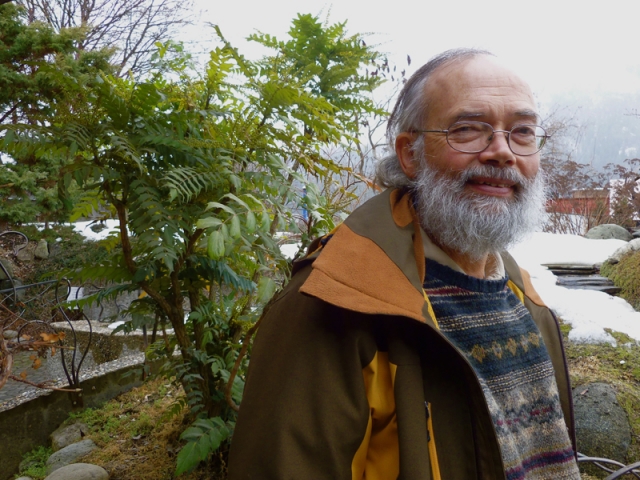West Kootenay Climate Change Study: Local Scientists Say Time for Action is Now
by Suzy Hamilton, The Nelson Daily
What we don’t do today will have a significant impact on tomorrow.
That’s the message of a three-year climate change study conducted by West Kootenay scientists.
“We weren’t sure what to expect when we started, and the results were even shocking to us,” said Nelson forest ecologist Greg Utzig, one of the study’s authors.
Utzig, biologist Dr. Rachel Holt and registered professional foresters Heather Pinnell and Cindy Pearce assessed the vulnerability of ecosystems in the West Kootenays to the changing climate.
They used data gathered from local forest practitioners, scientists, other stakeholders and past events.
The team looked at a series of climate projections. The resultsestimated that by the 2080s, average temperatures in winter, spring and fall might warm by between two to five degrees Centigrade.
In the summer, average temperatures may increase by three to seven degrees C.
Seasonal precipitation was projected to increase by 10 to 25 per cent in the winter, spring and fall, while summer precipitation may remain unchanged, or decreased by up to 30 percent.
All the projections pointed to increased summer moisture stress such as drought.
Three climate scenarios were selected for more detailed modeling, Utzig said.
All three scenarios projected a bio climate — the climate that supports a vegetative type — change that reflect decreasing moisture availability at mid and lower elevations.
“This indicates that by the 2080s, the lower elevations in the West Kootenays will no longer be suitable for forests,” said Utzig.
“We will likely be shifting to conditions that support grasslands and sagebrush.”
The current locations of bio climates projected for the study area in the 2080s are presently found as far south as Colorado, west to coastal BC, and north to Alaska, he said.
“This surprising range of projections points to the complexities of how seasonal climate combinations will shift,” said Utzig.
“It highlights that displacements to the species’ ranges required to keep pace with climate change may not be a simple move from south to north.”
It is not only animals that will be affected, he said.
“The sub alpine fir and spruce forests presently found in upper elevations will likely disappear,” said Utzig. “The modeling results, however, are quite uncertain about what they will be replaced with.”
The study also revealed that forest fires and insect infestations due to stressed conditions would also be significant.
At lower elevations these changes could be “catastrophic,” said Utzig
“Modeling indicated that the average area burned each year would increase at least three to four times by the 2050s.”
How to handle such information is a big question, said Utzig.
A series of workshops with local foresters and other stakeholders identified barriers to adaptation to the climate changes. They include: Lack of funding, lack of government leadership, and an unresponsive regulatory framework.
One of the principle measures for forest and conservation adaptation is to “increase ecosystem resiliency and active adaptive management.”
“This project provides a foundation for local adaptation, but much work remains,” said Utzig.
“Barriers need to be addressed, especially those that promote inaction today. Feedback from further research and monitoring must be incorporated into ongoing activities.”
The BC Future Forest Ecosystem Scientific Council (FFESC) funded the project.
A series of detailed reports are available at www.kootenayresilience.org


























Comments